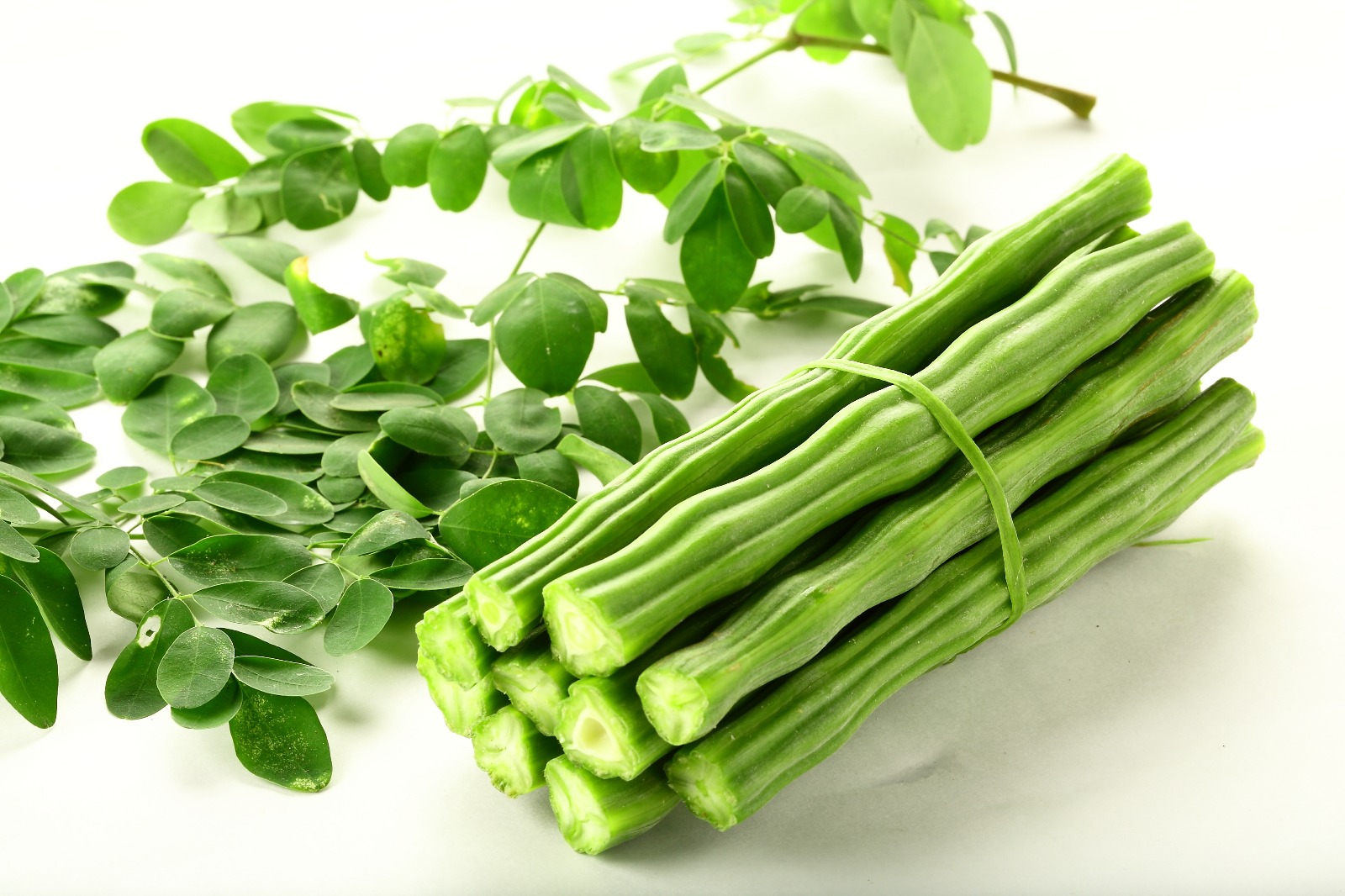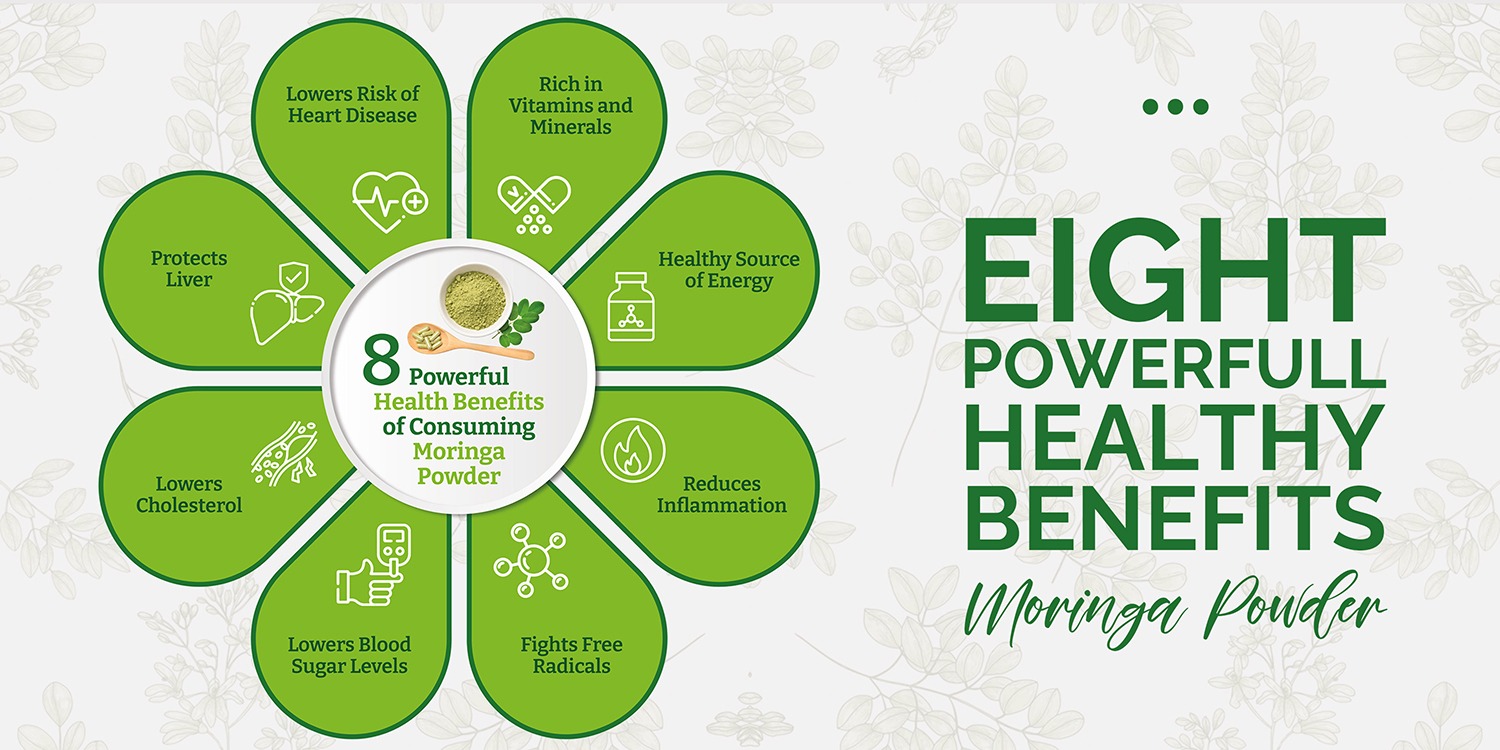Moringa vs Chlorella
Superfoods have been gaining popularity in recent years due to their numerous health benefits. Two such superfoods are Moringa and Chlorella. Moringa is a tree that is native to India and has been used in traditional medicine for centuries. Chlorella, on the other hand, is a type of algae that grows in freshwater. Both Moringa and Chlorella are packed with essential nutrients and are known for their antioxidant and anti-inflammatory properties. In this article, we will compare Moringa vs Chlorella, exploring their nutritional value, health benefits, and ways to consume them. By the end of this article, you will have a better understanding of Moringa vs Chlorella, and be able to make an informed decision about which superfood is right for you.
Moringa

For centuries, the leaves, pods, and seeds of Moringa, a tree indigenous to India, have been utilized in traditional medicine. This superfood is packed with essential vitamins and minerals, including vitamin A, vitamin C, iron, and calcium. Moringa also contains antioxidants and anti-inflammatory compounds, which help to protect the body from cellular damage and reduce inflammation.
One of the unique features of Moringa is its high protein content. The leaves of the Moringa tree are an excellent source of protein, containing all nine essential amino acids that the body needs to function properly. This makes Moringa an excellent choice for vegetarians and vegans who may struggle to get enough protein from their diets.
Moringa has been linked to numerous health benefits. It can boost the immune system, thanks to its high levels of vitamin C and antioxidants, and has been shown to reduce inflammation in the body. Moringa is also thought to support brain health, with some studies suggesting it may help to improve memory and cognitive function. Additionally, Moringa has been shown to help regulate blood sugar levels in people with diabetes.
There are many ways to consume Moringa. It can be brewed as tea, added to smoothies or soups, or even used as a seasoning for savory dishes. Moringa supplements are also available in capsule or powder form for those who prefer a more convenient option. Regardless of how you choose to consume it, adding Moringa to your diet can help you reap the numerous health benefits this superfood has to offer.
Chlorella
Chlorella is a type of algae that grows in freshwater, and it has been touted as a superfood for its numerous health benefits. Like Moringa, Chlorella is packed with essential vitamins and minerals, including vitamin C, iron, and calcium. It also contains high levels of antioxidants and anti-inflammatory compounds that help protect the body from cellular damage and reduce inflammation.
One of the unique properties of Chlorella is its ability to detoxify the body. Chlorella is known for its ability to bind to heavy metals and other toxins in the body and eliminate them through the digestive system. This makes Chlorella an excellent choice for people who have been exposed to environmental toxins or who are looking to support their body’s natural detoxification processes.
Chlorella is also thought to promote digestive health. It contains high levels of fiber, which can help to regulate bowel movements and promote healthy digestion. Additionally, Chlorella has been shown to support the immune system, thanks to its high levels of vitamin C and other immune-boosting nutrients.
There are many ways to consume Chlorella. It can be added to smoothies, mixed into salad dressings, or even taken in capsule form as a supplement. Some people also use Chlorella as a natural food coloring, as it can give foods a vibrant green color.
In summary, Chlorella is a superfood that offers numerous health benefits, including detoxification, digestive health, and immune support. Incorporating Chlorella into your diet can be a great way to support your overall health and well-being.
Comparison of Moringa vs Chlorella
When it comes to comparing Moringa vs Chlorella, there are some similarities and differences to consider. Both superfoods are packed with essential nutrients, including vitamins and minerals, antioxidants, and anti-inflammatory compounds. They also offer unique health benefits that make them stand out from each other.
In terms of protein content, Moringa wins out, as it contains all nine essential amino acids and is an excellent source of plant-based protein. Chlorella, on the other hand, is rich in chlorophyll, a nutrient that is thought to promote detoxification and improve skin health.
Both Moringa and Chlorella are known for their immune-boosting properties. Moringa is high in vitamin C and antioxidants, while Chlorella contains immune-boosting nutrients like vitamin C and zinc.
When it comes to digestion, Chlorella may have the upper hand. Its high fiber content can help to promote healthy digestion and regular bowel movements, while Moringa has been shown to help regulate blood sugar levels in people with diabetes.
Another important factor to consider is taste and accessibility. Chlorella has a strong, earthy flavor and is often consumed in powder or capsule form, which some people may find challenging to incorporate into their diet. Moringa, on the other hand, has a slightly bitter taste that some describe as similar to horseradish. While it is not sweet, it has a milder flavor compared to Chlorella and is available in various forms, including supplements, teas, and powders, making it more accessible to consumers.

In conclusion
Both Moringa and Chlorella are excellent superfoods that offer a range of health benefits. They are both rich in essential nutrients, including vitamins and minerals, antioxidants, and anti-inflammatory compounds. However, they differ in terms of protein content, chlorophyll, taste, and accessibility.
Moringa is an excellent source of plant-based protein and is known for its ability to regulate blood sugar levels. It has a slightly bitter taste but is widely available in various forms, making it more accessible to consumers.
Chlorella, on the other hand, is rich in chlorophyll, a nutrient that promotes detoxification and healthy skin. It has a strong, earthy flavor that some may find challenging to incorporate into their diet.
Ultimately, the choice between Moringa and Chlorella comes down to personal preference and health goals. Both superfoods can be incorporated into a healthy diet in various ways, whether through supplements, teas, powders, or capsules.
It’s essential to note that while superfoods like Moringa and Chlorella offer numerous health benefits, they should not be seen as a replacement for a balanced and healthy diet. Incorporating these superfoods into a diet that is rich in whole foods, fruits, and vegetables is an excellent way to support your overall health and well-being.
References
Sharma, D., Soni, P., & Nagpal, S.S. (2018). Chlorella vulgaris: A Multifunctional Dietary Supplement with Diverse Medicinal Properties. Journal of Medicinal Food, 21(2), 127-134. (https://www.ncbi.nlm.nih.gov/pmc/articles/PMC6116094/)
Moringa With Barry stores offer a variety of moringa products. These include: Moringa Powder, Moringa Tea, Moringa Capsules and Moringa Oil.
Read more:
Here are the titles for the given keywords:
1. Moringa vs Ashwagandha: A Comparative Analysis of Benefits
2. Moringa vs Spinach: Nutritional Showdown
3. Moringa vs Green Tea: Unveiling Health Benefits and Differences
4. Moringa vs Fenugreek: Exploring Nutritional Properties
5. Moringa vs Turmeric: A Comprehensive Comparison of Health Benefits




